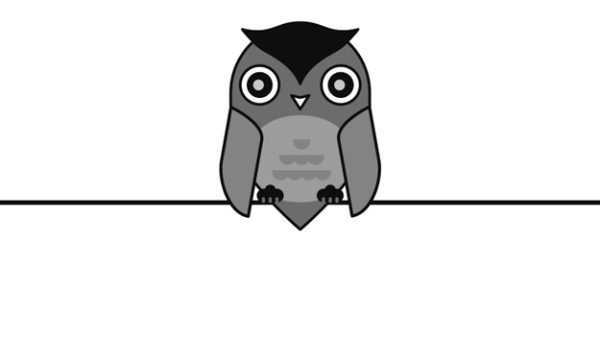Having a loyal audience is the holy grail of the email marketing world. More valuable than clicks, page views or Facebook followers, the size and quality of your audience will ultimately determine your success. In this post, we’ll walk through the process of creating and building an audience for your website and email newsletter.
The benefits of having an audience
As with any difficult task, you may first wonder: why bother? Is building an audience really worth all the effort? Can’t you just publish good posts and forget about it?
Unfortunately, it’s not that simple. Why? The short answer is that people respect authority and social proof. When buying a product or making a financial decision, we want to trust the person selling it to us and we want to know that other people like us have purchased the product (and recommend buying it). If the seller seems mysterious or untrustworthy, we instinctively don’t trust them. Likewise, if a product has very few reviews by other customers, we wonder if its description is misleading or exaggerated.
By building an audience, you’ll solve both of these problems simultaneously. When you consistently publish high-quality content, you’ll earn respect from your readers, build authority on your topic, and develop social proof via the ever-increasing number of subscribers that read and comment on your work. It’s a win-win situation all-around.

Less topics lead to more readers
The first step toward building an audience is narrowing down the range of topics that you write about. While you may have many interests, you should aim to only publish posts on a relatively small amount of things. Here on the MailPoet Blog, we limit ourselves to roughly three categories:
- MailPoet news and features
- Email marketing tips
- Advice on writing and productivity
These categories, while somewhat limited, still allow us to generate new, interesting content on a regular basis. However, you won’t see us writing about the new iPhone, reviewing the latest Avengers movie or sharing our favorite recipes (and we love sharing recipes). Why? Because it’s not what our audience wants to read.
Need some help coming up with your own content ideas? Check out our guide to the topic.
Convey your identity immediately
Just as in real life, first impressions are extremely important on the web. Studies have repeatedly shown that the average Internet user visits a web page for 10 to 15 seconds, at most. As such, it’s critical to convey what your website is about immediately and succinctly.
Users often leave Web pages in 10–20 seconds, but pages with a clear value proposition can hold people’s attention for much longer. To gain several minutes of user attention, you must clearly communicate your value proposition within 10 seconds.
Jakob Nielsen
Visitors shouldn’t have to dig into the site map or read the About page to figure out what your website is about. The header, blog posts, and email newsletters should always contain a tagline, or a short sentence description of your website’s purpose.
While it may seem unimportant, this description is critical to building a loyal audience. To gather a following, you need to make your tagline as personal and relatable as possible. For example, “Quick recipes for busy moms,” or “Time-management software for part-time entrepreneurs.” You want a visitor to read it and think, “Hey, that sounds like me!”
Naturally, the easiest way to relate to your readers is to actually be interested in the topics that you write about. Writing about something that you aren’t passionate about is a surefire way to be unsuccessful. When you truly care about the topic, your dedication and curiosity will show through to your readers.
Are you a designer? Create a product for designers. A speech language pathologist? Create a product for [speech language pathologists]. A mom? Make products for moms. A freelancer? You get the idea.
Nathan Barry
Be accessible
No one likes to read corporate blog posts by anonymous authors. People like people. So, be yourself and convey your personality through your writing. Add a lengthy biography to your About page and consider adding an “About the Author” blurb to the bottom of your posts. Even if you sell manufacturing widgets to another widget manufacturing company, it still helps to put a face to a name.
Building an audience is ultimately about building a relationship with your readers. As they get to know you better, they’ll trust what you have to say. When your audience trusts you, they will feel more comfortable giving you money.
One of the easiest ways to build a relationship with your readers is to interact with them. Whether in the blog comments, on social media, over email, or otherwise, try to start a dialogue with your readers. At the end of each post or newsletter, encourage them to ask questions or offer suggestions.

Authenticity sells
When it comes to interacting with your subscribers (and to blogging in general), authenticity is key. Do you remember the last time you interacted with an employee or customer service representative from a big company? It probably wasn’t very personalized and you probably don’t remember anything about the person that you talked to.
Rather than put on a “corporate” image, aim to be authentic. These days, transparency, honesty, and straightforwardness are the name of the game.
What people really want now is not just a product or a service, it’s an experience. An experience that is more honest and transparent …more authentic – and businesses are going to have to keep up with growing consumer authority and give people what they want if they want to survive.
Kissmetrics
However, that doesn’t mean that you should treat your business’s website like a personal blog. Resist the urge to include funny links, family photos, or other unrelated content on your website or in your email newsletter. Remember: stay focused.
Rome wasn’t built in a day
Now, you may wonder how many subscribers actually constitute a good audience. And how long will it take to build this audience? Weeks? Months? Years?

The answer may surprise you. It typically takes about 1 to 2 years of bimonthly blogging (a new post twice a month) to get an audience of a few hundred visitors and even longer to break 1,000 subscribers. If you add 200 to 300 subscribers every year, you’re doing just fine. In fact, about 75% of MailPoet users have less than 500 subscribers.
Remember, patience is a virtue. Building an audience takes time, so don’t try to rush it. Rome wasn’t built in a day and neither were the most successful blogs on the web.
Quality, not quantity
Finally, let’s talk a little bit about your content itself. New bloggers often think that more content is always better. After all, isn’t a blog with more posts, more content, and more pages a more popular blog? Not necessarily.
Always remember that the Internet is a busy place. Online, attention is scarce. Every day, tens of thousands of bloggers publish new posts, send weekly newsletters, and create more social media content.
Thus, the single best way to gain a loyal, long-lasting audience is to consistently publish extremely high-quality content. The key word here is quality (and not quantity). Don’t worry if you can only publish a new post every week or two; a top-notch blog post once a week will always beat a daily-but-mediocre post.
Ten times better
In the marketing world, content that is extra-awesome is called “10x Content”, as it’s (ideally) ten times better than any competition. This guide by Moz explains the concept in depth.
It’s becoming necessary that your brand must be ten times better known, ten times more trusted, ten times more referenced than any of your competitors’ brands.
Rand Fishkin
What’s so special about 10x, or high-quality content? It helps establish that you’re an expert – someone worth listening to. When you’re an expert, people are more willing to buy your products, subscribe to your newsletter, or hire you as a consultant – all good outcomes, indeed.
Do you have a large blog or newsletter audience? What tactics have you used to build it? Let us know in the comments!



